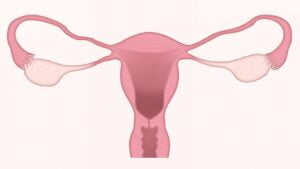Polycystic Ovary Syndrome (PCOS) is a common hormonal disorder affecting millions of women worldwide. Characterized by irregular menstrual cycles, it poses significant challenges for those trying to conceive. Ovulation is often infrequent or absent in women with PCOS, making natural conception difficult. However, modern medicine offers hope. This blog explores the various ovulation medicines for PCOS, aiming to demystify the process and provide valuable insights.
Contents
What Are Some Ovulation Medicine For PCOS?
 For women with Polycystic Ovary Syndrome (PCOS) who are struggling with infertility due to anovulation (lack of ovulation), several medications can be used to induce ovulation. These medications work in different ways to stimulate the ovaries to release eggs. Here are some of the most commonly prescribed ovulation medicines for PCOS:
For women with Polycystic Ovary Syndrome (PCOS) who are struggling with infertility due to anovulation (lack of ovulation), several medications can be used to induce ovulation. These medications work in different ways to stimulate the ovaries to release eggs. Here are some of the most commonly prescribed ovulation medicines for PCOS:
Clomiphene Citrate (Clomid)
Clomiphene citrate, commonly known as Clomid, is a widely used oral medication for inducing ovulation in women with PCOS. It is often the first-line treatment due to its ease of use and effectiveness. Clomid functions as a selective estrogen receptor modulator (SERM). By blocking estrogen receptors in the hypothalamus, it prevents the negative feedback of estrogen on the hypothalamus. This results in increased production of gonadotropins by the pituitary gland, particularly the follicle-stimulating hormone (FSH). This is essential for follicular development and ovulation.
Letrozole (Femara)
Letrozole is another frontline oral medication for ovulation induction, particularly in women with PCOS. Unlike Clomid, Letrozole is an aromatase inhibitor. It works by inhibiting the enzyme aromatase. This is responsible for converting androgens to estrogens. This reduction in estrogen levels causes the pituitary gland to increase the production of FSH, thus promoting the growth of ovarian follicles. Recent studies have shown that Letrozole may be more effective than Clomid in inducing ovulation in PCOS patients and could have fewer side effects.
Metformin
Metformin is traditionally an antidiabetic medication used to improve insulin sensitivity in type 2 diabetes. In the context of PCOS, it is utilized to manage insulin resistance, a common condition associated with PCOS. By improving insulin sensitivity, Metformin can help in reducing hyperinsulinemia. This is believed to cause excessive androgen production in the ovaries. Reduced androgen levels can lead to more regular menstrual cycles and improved ovulation rates. Additionally, when combined with Clomid or Letrozole, Metformin can increase the effectiveness of these drugs in inducing ovulation.
Gonadotropins
For women who do not respond to oral medications like Clomid or Letrozole, gonadotropins may be the next step. These are injectable hormones that directly stimulate the ovaries to produce one or more follicles. The most commonly used gonadotropins are FSH, LH, or a combination of both. Treatment with gonadotropins requires careful monitoring through blood tests and ultrasounds to avoid risks like multiple pregnancies and OHSS.
In-vitro fertilization (IVF) Medications
If simpler treatments fail, or if there are additional factors contributing to infertility, IVF might be recommended. IVF involves a combination of medications to stimulate the ovaries to produce multiple eggs. These eggs are then retrieved and fertilized with sperm in a laboratory. The resulting embryos are monitored for growth and development before one or more are transferred to the uterus. IVF medications include a mix of gonadotropins and other drugs to control the timing of ovulation and to prepare the uterus for implantation.
Other Therapies
Research is ongoing in the development of new treatments for PCOS-related infertility. This includes novel insulin sensitizers that may be more effective or have fewer side effects than Metformin, new types of anti-androgens to reduce the high levels of male hormones often seen in PCOS, and alternative ovulation-inducing agents. These therapies are in various stages of research and may offer additional options for women who do not respond to conventional treatments.
Each of these ovulation medicine for PCOS offers different pathways to overcome the challenges of PCOS-related infertility. The choice of medication depends on individual patient factors including the severity of symptoms, the presence of insulin resistance, patient preferences, and the existence of other infertility factors.
Benefits And Risks Of Ovulation Medicine For PCOS
 When considering ovulation medicine for PCOS, it’s important to weigh both the benefits and risks to make an informed decision. Here’s an overview:
When considering ovulation medicine for PCOS, it’s important to weigh both the benefits and risks to make an informed decision. Here’s an overview:
Benefits
- Increased Chances of Ovulation and Conception: The primary benefit of these medications is to induce ovulation. This is often irregular or absent in women with PCOS. This significantly improves the chances of conception.
- Regulation of Menstrual Cycles: These medications can help in regularizing menstrual cycles. This is beneficial for overall reproductive health and planning for pregnancy.
- Reduction in PCOS Symptoms: Medications like Metformin can also help in managing other PCOS symptoms, such as insulin resistance and potentially weight management. Ultimately, it can indirectly improve fertility.
- Non-Invasive Treatment Option: Oral medications like Clomiphene and Letrozole offer a non-invasive first step in treatment. It is often preferable for many women.
- Lowering the Risk of Endometrial Problems: Regularizing ovulation and menstrual cycles can reduce the risk of endometrial hyperplasia and possibly endometrial cancer. These are risks associated with anovulation and PCOS.
Risks and Side Effects
- Multiple Pregnancies: Medications that stimulate the ovaries can sometimes lead to the release of multiple eggs, increasing the risk of twins, triplets, or higher-order multiples. It carries higher pregnancy and birth complications.
- Ovarian Hyperstimulation Syndrome (OHSS): This is a potential risk with gonadotropin therapy and rarely with Clomiphene or Letrozole. OHSS can be a serious condition where the ovaries swell and leak fluid into the body.
- Side Effects of Medications: Common side effects of Clomiphene include hot flashes, mood swings, and breast tenderness. Letrozole may cause fatigue, dizziness, or gastrointestinal issues. Metformin can lead to gastrointestinal upset, though this often improves over time.
- Possible Birth Defects: There is a slightly increased risk of birth defects with the use of fertility drugs, although this risk is still relatively low.
- Emotional and Psychological Impact: Dealing with fertility treatments can be emotionally challenging and stressful. It can affect mental health.
- Failure to Conceive: Despite treatment, some women with PCOS may still have difficulty conceiving, necessitating more advanced fertility treatments like IVF.
While ovulation medicine for PCOS offers hope and a solution for many women with PCOS struggling with infertility, it’s crucial to have a thorough discussion with a healthcare provider. Understanding the potential benefits and risks, and monitoring during treatment, are key to achieving a successful and healthy pregnancy.
How Can I Ovulate Faster With PCOS?
 To naturally stimulate ovulation and improve fertility in women with PCOS (Polycystic Ovary Syndrome), several lifestyle and dietary changes can be effective. While medication is often used to induce ovulation, these natural methods focus on addressing the underlying hormonal imbalances and metabolic issues associated with PCOS. Here are some strategies:
To naturally stimulate ovulation and improve fertility in women with PCOS (Polycystic Ovary Syndrome), several lifestyle and dietary changes can be effective. While medication is often used to induce ovulation, these natural methods focus on addressing the underlying hormonal imbalances and metabolic issues associated with PCOS. Here are some strategies:
Maintain a Healthy Weight
Weight loss can be highly effective in regulating menstrual cycles and improving ovulation in women with PCOS, especially if you’re overweight or obese. Even a modest reduction of 5-10% in body weight can improve insulin resistance, decrease androgen levels, and increase the likelihood of ovulation.
Regular Exercise
Regular physical activity helps in managing PCOS symptoms. It can improve insulin sensitivity, promote weight loss, reduce blood sugar levels, and help regulate menstrual cycles. Both aerobic exercises (like walking, running, or swimming) and resistance training (like weight lifting) are beneficial.
Balanced Diet
A healthy diet plays a critical role in managing PCOS. Focus on a diet rich in whole foods, including fruits, vegetables, whole grains, lean proteins, and healthy fats. Reducing the intake of processed foods, sugary snacks, and refined carbohydrates can help regulate blood sugar levels and improve ovulation.
Low Glycemic Index (GI) Foods
Consuming low-GI foods can stabilize insulin and glucose levels. Foods with a low GI include whole grains, legumes, nuts, seeds, fruits, starchy vegetables, and other unprocessed, low-carbohydrate foods.
Manage Stress
Stress can exacerbate PCOS symptoms and negatively impact ovulation. Techniques such as yoga, meditation, deep breathing exercises, and mindfulness can be effective in reducing stress levels.
Supplements and Herbs
Certain supplements may help manage PCOS symptoms, although it’s essential to consult with a healthcare provider before starting any supplement regimen. Inositol, particularly myo-inositol, is commonly recommended for improving fertility in women with PCOS. Other supplements like omega-3 fatty acids, vitamin D, and magnesium might also be helpful.
It’s important to remember that while these methods can be effective in managing PCOS and improving fertility, they might not work for everyone. Women with PCOS who are trying to conceive should work closely with their healthcare provider to develop a comprehensive and personalized plan.
Conclusion
In conclusion, for women battling PCOS, the journey to achieve successful ovulation and conception can be challenging but is filled with hope. Through a combination of ovulation medicine for PCOS, such as Clomiphene Citrate, Letrozole, Metformin, gonadotropins, and possibly IVF, along with natural methods like maintaining a healthy weight, balanced diet, regular exercise, and possibly herbal supplements, ovulation can often be induced more effectively.
It’s essential to remember that every woman’s experience with PCOS is unique, and what works for one may not work for another. With persistence, patience, and the right approach, many women with PCOS can achieve their dream of becoming pregnant. If you are facing PCOS-related issues, PCOS treatment at HerMantra can help. Book your free trial online pcos treatment session now.


